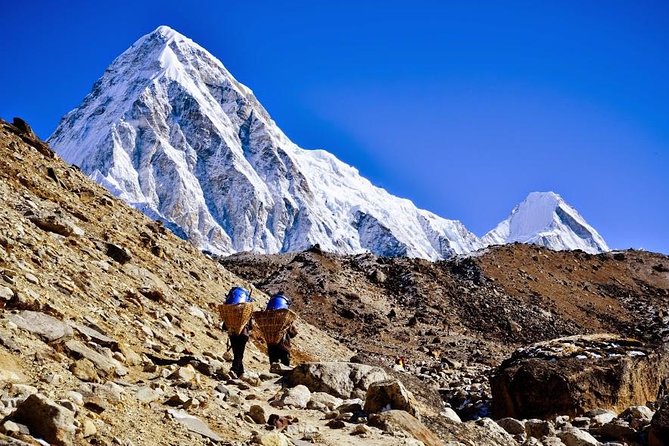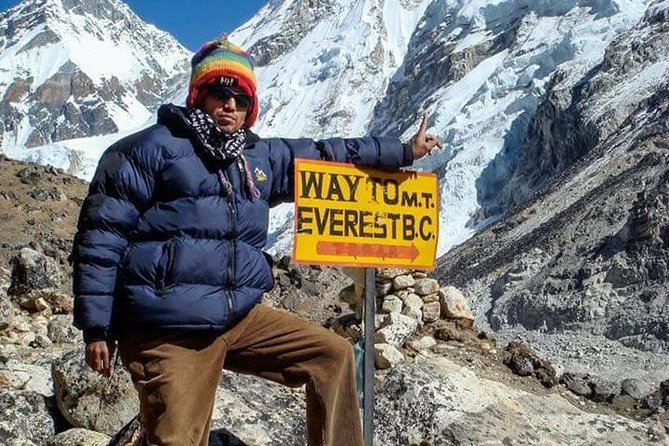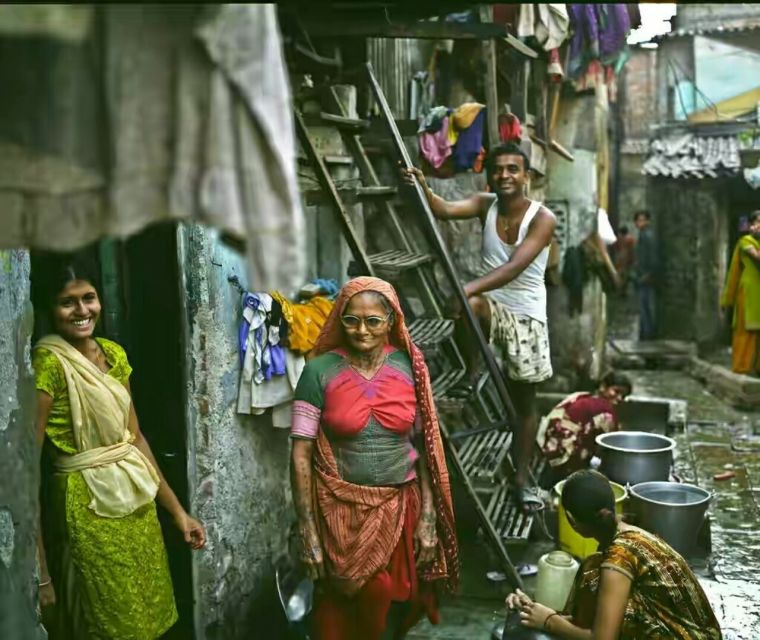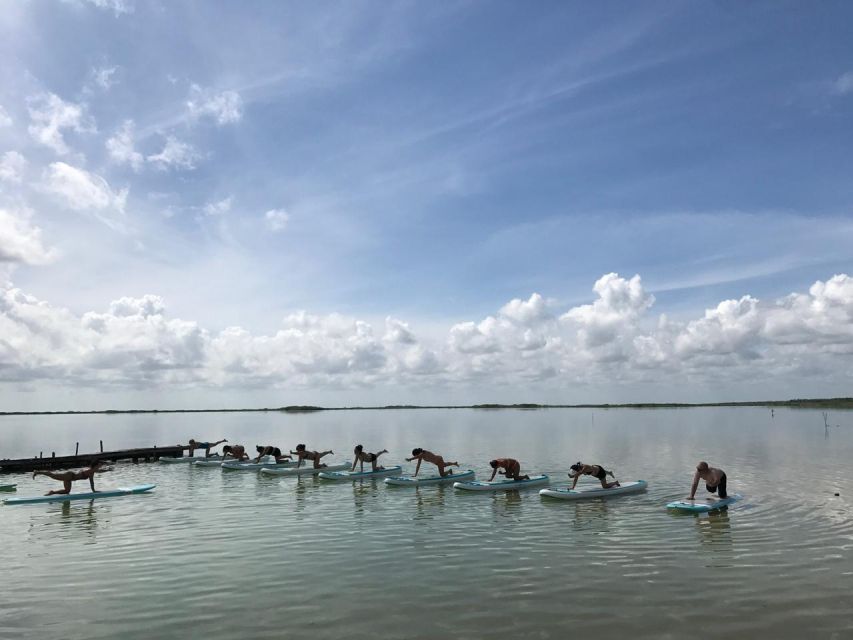The EBC Trek offers an extraordinary opportunity for adventurous travelers to explore the iconic Everest Base Camp. This guided trekking experience promises a seamless journey through the captivating Sherpa villages, across suspension bridges, and amidst the grandeur of the Himalayan peaks. With experienced guides, essential gear, and comprehensive logistics, the trek caters to moderately fit individuals, ensuring a safe and unforgettable adventure. But what awaits at the end of this extraordinary journey? The answer lies in the breathtaking vistas and the personal triumphs that await the determined trekkers.
Key Points
- A guided Everest Base Camp trek that includes a domestic flight from Kathmandu to Lukla, trekking through Sherpa villages, and reaching the base camp at 5,364 meters.
- Accommodations in cozy teahouses with shared bathroom facilities, serving Nepali and international cuisine, and catering to dietary requirements.
- Provision of trekking gear and equipment, including a sleeping bag, duffel bag, oximeter, and porters to carry up to 18 kg of gear.
- Experienced, English-speaking trekking guides and dedicated porters, with expertise in the region’s geography, culture, and safety, and monitoring of oxygen saturation and heart rates.
- Inclusion of domestic transportation, Sagarmatha National Park fees, and personal travel insurance coverage, as well as a maximum group size of 12 travelers with a requirement of moderate physical fitness.
Itinerary and Highlights
The Everest Base Camp trek kicks off with a domestic flight from Kathmandu to Lukla, the gateway to the Everest region.
Trekkers then embark on a journey that takes them through picturesque Sherpa villages, across suspension bridges, and alongside the mighty Dudh Koshi River, ultimately leading them to the iconic Everest Base Camp at an elevation of 5,364 meters (17,598 feet).
Along the way, they’ll witness the awe-inspiring Himalayan peaks, including the majestic Everest, and explore the rich Sherpa culture.
The trek offers breathtaking vistas, challenging yet rewarding terrain, and the opportunity to experience the magic of the Himalayas firsthand. It’s a truly unforgettable adventure for outdoor enthusiasts and trekking aficionados.
Accommodation and Meals

During the Everest Base Camp trek, accommodations are provided in cozy teahouses along the trekking route. These teahouses offer simple yet comfortable rooms, often with shared bathroom facilities.
Meals are included throughout the trek, featuring a delicious mix of Nepali and international cuisine, providing trekkers with the sustenance needed to conquer the challenging terrain.
The included meals consist of 11 breakfasts, 11 lunches, and 11 dinners, ensuring that trekkers are well-fed during the journey. Breakfast typically includes options like porridge, eggs, and local breads, while lunch and dinner feature a variety of rice, lentils, curries, and vegetables.
Dietary requirements can be accommodated with advance notice. The wholesome meals and comfortable accommodations help ensure a memorable and enjoyable Everest Base Camp trekking experience.
Trekking Gear and Equipment

For the Everest Base Camp trek, the provided trekking equipment ensures that participants are well-equipped and comfortable throughout the journey. The trek includes a sleeping bag and a duffel bag, both of which are refundable upon completion of the trip.
Plus, each participant receives an oximeter to monitor their oxygen saturation and heart rate during the strenuous trek. These essential items, along with the company’s souvenir t-shirt and hat, collectively contribute to a seamless and enjoyable trekking experience.
The tour also provides porters to carry up to 18 kg of each trekker’s gear, allowing them to focus on the trek itself without worrying about the weight of their belongings.
Guide and Porters
Experienced, English-speaking trekking guides lead the Everest Base Camp trek, providing helpful and friendly support throughout the journey.
Dedicated porters carry up to 18 kg of each trekker’s gear, ensuring participants can focus on the trek itself without the burden of heavy loads.
These guides are well-versed in the region’s geography, culture, and safety protocols, and they work closely with the porters to ensure a seamless and enjoyable experience for all.
The guides also monitor the group’s health, using oximeters to check oxygen saturation and heart rates, and they’re equipped to handle any emergencies that may arise.
With their expertise and attentive care, trekkers can fully enjoy the breathtaking beauty of the Everest region.
Transportation and Logistics
The trek to Everest Base Camp begins with convenient transportation from Kathmandu to Ramechap, where trekkers then board a domestic flight to Lukla, the gateway to the Everest region. This flight offers breathtaking aerial views of the towering Himalayas.
The trek package includes all necessary transportation, including the return journey from Manthali to Kathmandu. Travelers don’t have to worry about logistics, as the experienced guides handle everything from park fees to trekking equipment.
The inclusion of an oximeter ensures the group’s safety by monitoring oxygen levels and heart rates during the high-altitude trek. With all transportation and logistics taken care of, trekkers can focus on the incredible journey ahead.
National Park Fees and Taxes
The trek package covers all necessary national park fees and local government taxes, ensuring compliance with regulations and enabling seamless access to the Everest region. Hikers won’t need to worry about additional costs or paperwork, as the organizers have handled all the administrative details.
This includes the Sagarmatha National Park fees, which are required to enter the protected area around Mount Everest. The local government taxes are also included, providing full support and contributing to the local economy.
Travel Insurance and Evacuation
The trek package includes personal travel insurance and rescue evacuation.
It’s important for participants to thoroughly review the coverage details to ensure it aligns with their needs.
The organizers provide this protection to safeguard trekkers in case of unexpected emergencies or medical issues that may arise during the expedition to Everest Base Camp.
The insurance covers costs related to medical treatment, hospitalization, and emergency evacuation, which can be crucial in the remote and challenging environment of the Himalayas.
Trekkers should familiarize themselves with the policy’s terms and exclusions to understand what’s and isn’t covered.
This preparation can give peace of mind and allow participants to focus on the incredible journey ahead.
Group Size and Fitness Level
The Everest Base Camp trek is designed for a maximum group size of 12 travelers, ensuring a more intimate and personalized experience.
Participants must also maintain a moderate level of physical fitness to successfully complete the challenging high-altitude hike. The trek involves trekking for several hours each day, often on uneven terrain. A good level of cardiovascular fitness and the ability to walk for extended periods are essential.
Those with pre-existing medical conditions or back problems should consult a healthcare professional before booking the trek, as it’s not recommended for those with serious medical conditions. The organizers reserve the right to refuse participation for travelers who may not meet the minimum fitness requirements.
Frequently Asked Questions
What Is the Difficulty Level of the Everest Base Camp Trek?
The Everest Base Camp trek is considered a moderate-to-challenging difficulty level. It requires a good level of physical fitness and endurance, as the trek involves long days of hiking at high altitudes with steep ascents and descents.
Can I Add Extra Days to the Trek Itinerary?
Yes, travelers can add extra days to the Everest Base Camp trek itinerary. The tour operator allows for customizations and can extend the trek duration based on the traveler’s preferences and fitness level.
Is It Possible to Trek Alone or in a Smaller Group?
Trekking alone or in a smaller group is possible, but not recommended for the Everest Base Camp trek. This challenging hike is best undertaken with an experienced guide and porter support to ensure safety and enjoyment.
What Are the Safety Precautions During the Trek?
The trek requires safety precautions like using an oximeter to monitor oxygen levels, having a guide, porter support, and travel insurance. Strict medical checks and age/fitness requirements also ensure trekkers’ well-being. Safety is paramount on this challenging high-altitude hike.
Are There Any Age or Health Restrictions for the Trek?
There are age and health restrictions for this trek. Participants must be at least 18 years old and have moderate physical fitness. Those with back problems, pregnant women, and those with serious medical conditions are not recommended to join the trek.
Recap
The EBC Trek offers an unparalleled opportunity to explore the iconic Everest Base Camp.
Trekkers can expect a seamless experience with comfortable accommodations, quality meals, and essential gear provided.
Experienced guides and comprehensive logistics ensure a safe and memorable journey through the breathtaking Himalayan landscape.
Whether you’re a seasoned adventurer or a first-time trekker, the EBC Trek caters to moderately fit travelers, making it an accessible and unforgettable adventure.






